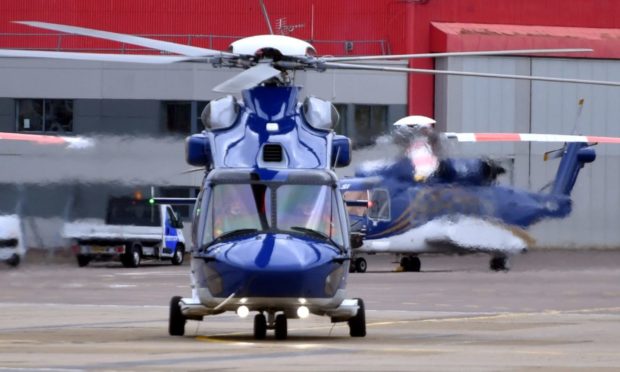Engineering service group Babcock International lost 16% of its value after it reported a £1.6bn loss for the year due to writing down the profitability of its contracts.
The company, which operates a North Sea oil and gas helicopters division that is currently being sold to rival CHC, published its full-year results causing shares to fall sharply.
It revealed an operating loss of £1.64bn from £75.6m a year earlier. It is largely due to the previously flagged one-off, non-cash impairments, which are the result of a review of its contract and balance sheet profitability.
Its shares closed 16% lower to 255.9p
Net debt for the year was down from £1.7bn to £1.35bn with revenue reaching £4.18bn compared to £4.43bn a year ago.
David Lockwood, Babcock chief executive, said: “We have now completed the series of reviews announced in January. These have reinforced our confidence in the underlying strength of the Babcock business and at the same time helped identify the necessary strategic changes to improve our performance.
“We have a plan in place to strengthen the group without the need for an equity issue.
“The full year 2021 performance reflects both the new financial baseline for the business and the impact of COVID-19 on our operations and markets.
“Looking forward, Babcock will be a simplified and more focussed group with a renewed emphasis on the exceptional engineering skills of its people.
“We will be well placed to take advantage of the many opportunities we see in both UK and international markets, leading to improved cash generation and profitability in the medium term.”
Mr Lockwood admitted that expectations for the near £1bn acquisition of its North Sea helicopter business in 2014 “have not played out”, adding ruefully that: “As a group, it seems that we sometimes have been optimistic in setting objectives.”
The firm did a deal to acquire the assets of the firm, which own Bond Offshore.
In a statement he said: “We also have to accept that the expectations we had for the Avincis acquisition in 2014 have not played out. Growth in the markets Avincis served has not been as expected, most notably in oil and gas, and the profitability of those businesses has been under pressure for some years.
He added: “We are disposing of our oil and gas business and are further reviewing the aerial emergency services businesses.”
Babcock Helicopters announced in March this year it had conditionally agreed the sale of its oil and gas aviation business to rivals CHC.
At that time saying the deal was due to be completed in the second quarter of this year, subject to third party conditions. The deal is thought to include helicopters including S92s, H175s and the deal operate a North Sea search and rescue service with two AW139s based at Aberdeen Airport.
The MOD-specialist took a £5.2million hit for “loss-making contracts” for its North Sea helicopter business in the 2020 financial year.
The sum was revealed in accounts for Babcock Mission Critical Services Offshore, its dedicated subsidiary for helicopter operations in the UK oil industry.
In May 2019 Babcock International reported a 40% drop in profits largely due to a major restructuring of its oil and gas helicopter business.
In it’s full year results for 2018, the engineering firm reported statutory pre-tax profits of £235.2 million, down from £391.1m the previous year.
It came after taking a series of exceptional charges costing £120million, mainly due to an overhaul of its oil and gas helicopter business following the end of operation of EC225 Super Puma in the North Sea.
